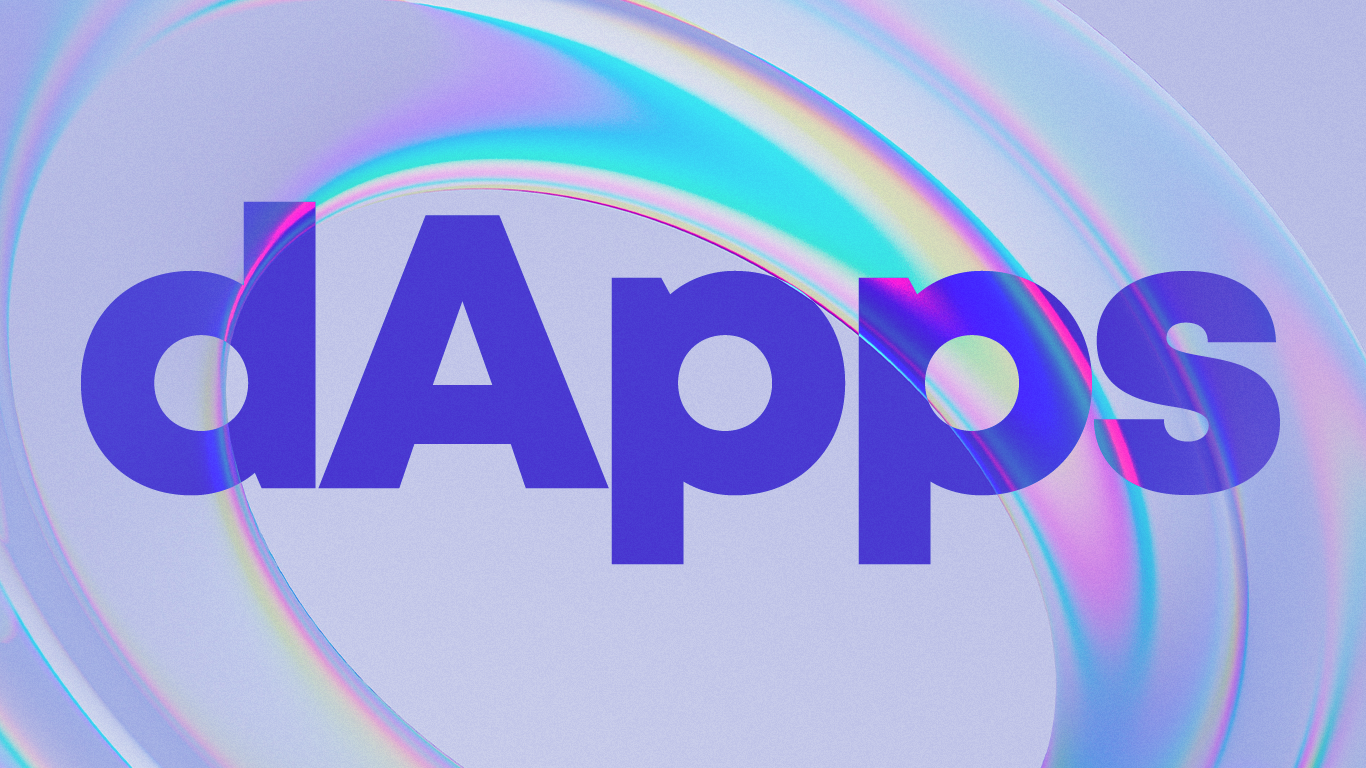Decentralized applications, or dApps, are applications that employ the use of blockchain technology. DApps are similar to regular applications but operate with a decentralized control and storage system.
Due to this design, decentralized applications are censorship-resistant and less vulnerable to security attacks than conventional applications. Moreover, they offer users control over their personal data while providing the required services.
This guide will extensively discuss what dApps are, their advantages and disadvantages, and how they compare to traditional centralized applications.
What are Decentralized Applications (dApps)?
Decentralized applications are digital applications that run on a blockchain. Like conventional applications, dApps are designed for everyday purposes such as gaming, banking, finance, social media, sports, etc. However, these applications operate on a peer-to-peer decentralized network, i.e. a blockchain, rather than traditional centralized servers. Therefore, dApps are not controlled by any central authority or company.
Smart Contracts
Generally, all decentralized applications operate on their own using smart contracts. These are blockchain-based programs that automatically execute when predefined conditions are met. Smart contracts serve as the back-end of dApps, connecting them to the blockchain and managing all operations on the application. In addition, these smart contracts allow dApps to operate with an open-source code that is publicly accessible and verifiable by anyone.
Tokens
That said, there are other features that are associated with decentralized applications. One of which is cryptographic tokens that are necessary to access the services on a dApp. These tokens are unique to each application and play an integral role in transaction validation. Also, as dApps are built on blockchains, they run a transparent operation in which all records and data are fully available to the public.
DApps also offer users other benefits of blockchain technology, including speed, anonymity, interoperability, and data security.
Decentralized vs Centralized Apps
A centralized application is an application that runs on a server or group of servers owned and controlled by a single entity or company. The majority of mainstream applications are centralized, including Facebook, Twitter, Netflix, and so on.
As earlier stated, centralized and decentralized apps share similar functions. However, there are notable differences in their mode of operation. For instance, centralized applications are completely owned and controlled by their developers, who determine how the applications are used. This is in contrast to dApps which are controlled by their users via a DAO in accordance with rules embedded in the application’s smart contracts.
To access a centralized application, users must download a copy of the app from an app store. Then, they are able to send and receive information and data directly from the central server/servers via this copy. For dApps, users do not need to download the app to access its services.
DApps also allow their users to retain their anonymity. However, users of centralized apps are usually required to submit their personal information before gaining access to prominent features of the app.
It is also worth noting that dApps have a higher security level than centralized applications. This is because they do not operate on a centralized server; thus, there is no central target for cyber attacks.
Other differences between decentralized and centralized apps are present in terms of transparency, transaction times, computing power requirements, and so on.
Advantages of dApps
Decentralized applications present several benefits to their users due to their application of blockchain technology. Some of these advantages include the following:
- Transparency: dApps are highly transparent applications as all their code, operations, and user transactions are publicly available and can be viewed by anyone.
- No Downtime: Due to decentralization, dApps cannot experience downtimes as they have several independent servers. These applications are constantly accessible.
- Censorship-resistant: As blockchain-based applications, dApps are free from all forms of control or influence of a government or an organization. Therefore, all initiated transactions will be processed unaltered, provided they meet the set conditions as stated in the smart contract.
- User-privacy: dApps ensure user privacy by allowing users to share only the required information for a particular service. dApp users are not mandated to share personal information to utilize the app’s services.
- Data security: Because dApps operate on a blockchain, they are protected against all forms of data loss or manipulation.
Disadvantages of dApps
The development and use of dApps are still in the early stages. Therefore, there are specific challenges associated with these applications. Some of the disadvantages of dApps include:
- Usability: Most dApps present a complex user interface which makes it difficult for users to navigate the application and its services.
- Scalability: In terms of scalability, many decentralized applications require signing improvements as there is a limit to the amount of network activity they can process at a time. More often than none, these applications experience network congestion.
- Hacking: As dApps operate an open-source code, this code can be viewed by anyone, including hackers, searching for smart contract vulnerabilities. This risk has led to several exploits in which investors have lost a huge amount of assets.
- Code modifications: Once a dApp is deployed, it is difficult to make changes to its code in terms of fixing bugs or other security risks. This is because code published on a blockchain is usually immutable.
Most Popular dApps
There are currently over 3,500 dApps. The majority of these applications run on the Ethereum blockchain, which is the most prominent platform for smart contract operations. Other blockchains which support dApps include Cardano, BNB Chain, Tron, EOS, Solana, and more.
That said, the most popular decentralized applications are:
- MakerDAO: An Ethereum-based decentralized finance (DeFi) protocol that issues the DAI stablecoin and facilitates crypto lending and borrowing.
- Uniswap: A decentralized exchange on Ethereum that allows users to swap tokens via peer-to-peer transactions.
- Gods Unchained: A free-to-play NFT card game that runs on the Ethereum network.
- Pancakeswap: A decentralized exchange built on the BNB Chain for swapping BEP-20 tokens.
- Axie Infinity: An NFT-powered online video game. It is built on the Ethereum blockchain but employs the Ronin sidechain as a scaling solution.
- Decentraland: A metaverse platform on Ethereum that allows users to interact with one another and purchase NFTs, which represent virtual plots of land.
- OpenSea: The world’s largest NFT marketplace. It is currently deployed on Ethereum, Klaytn, Polygon, and Solana.
FAQs
What is a dApp?
A decentralized application is an application that exists and operates on a blockchain network of computers rather than a central computer server.
What can dApps be used for?
dApps can be developed for various purposes, such as gaming, web browsing, finance, social media, etc.
What language are dApps written in?
For decentralized applications, the back-end code is written in smart contract programming languages. Popular languages include Solidity, Vyper, Serpent, and Yul.
Conclusion
Decentralized applications are a form of nascent technology with an ever-growing number of users. It is widely believed that these blockchain-based applications have the potential to go mainstream in the coming years. However, before such levels of adoption can be achieved, developers will have to deliver significant improvements in terms of scalability, usability, and user experience.








